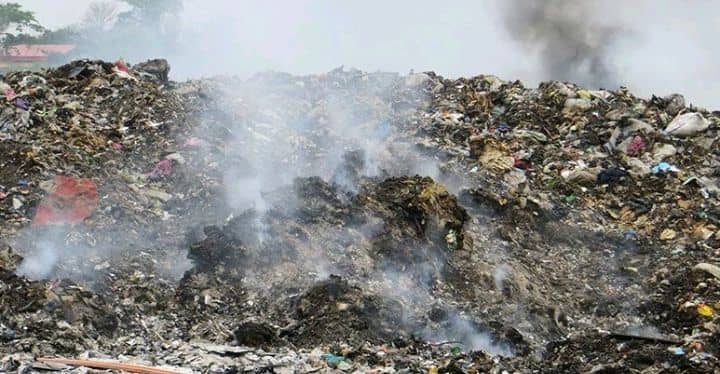Nigeria’s poor waste management practices are silently fueling greenhouse gas emissions and worsening the climate crisis, experts have warned. Unless urgent steps are taken, the country risks deeper environmental and public health challenges.
In an exclusive interview with our reporter, Dr. Chinedu Okafor, an environmental scientist and lecturer at the University of Port Harcourt, explained that improper disposal of organic and plastic waste contributes significantly to global warming.
“The truth is that the way we manage waste in many Nigerian cities is fueling greenhouse gas emissions,” Dr. Okafor said. “When organic waste such as food leftovers, animal droppings, and plant materials are dumped in open landfills without treatment, they decompose anaerobically and release methane gas. Methane is over 20 times more potent than carbon dioxide in trapping heat in the atmosphere.”
According to him, indiscriminate dumping of refuse in drains, unregulated open burning of plastics, and the absence of proper recycling facilities have worsened the situation.
“Every time waste is burnt by the roadside or in open dumps, dangerous gases such as carbon dioxide, carbon monoxide, and nitrous oxide are released into the atmosphere. These are all greenhouse gases contributing to climate change,” he explained.
Dr. Okafor further noted that these emissions are “silent but deadly contributors” to the extreme weather events increasingly felt in Nigeria.
“Flooding, excessive heatwaves, and irregular rainfall are not just natural occurrences. They are partly consequences of human actions like poor waste management,” he emphasized.
Highlighting global data, the environmentalist revealed that the waste sector contributes nearly 5% of total global greenhouse gas emissions. Nigeria alone generates an estimated 32 million tonnes of solid waste annually, yet less than 10% is recycled.
“Sadly, the rest ends up in open dumpsites. Compare this to countries where recycling rates are above 50% and where waste is converted into energy. We are losing resources and damaging the climate at the same time,” Dr. Okafor stated.
When asked how the crisis could be mitigated, Dr. Okafor recommended stronger government regulation, increased investment in recycling, and greater public participation.
“Government must strictly enforce regulations on waste management and incentivize recycling companies. At the same time, households need to embrace waste segregation — separating organic waste from plastics and metals. If we can channel organic waste into composting and biogas, and plastics into recycling plants, we will drastically cut greenhouse gas emissions,” he advised.
He also called on communities to discourage open burning and illegal dumps.
Dr. Okafor’s final words were a wake-up call:
“If we continue like this, the cost of climate change will be far greater than the cost of managing our waste properly. The time to act is now.”
Reporter

























